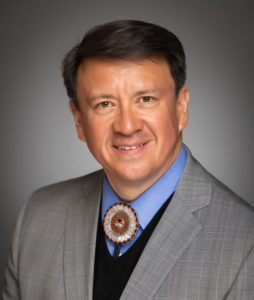Using Data To Guide Broadband Policy & Programming Interventions
August 6 – 2:45 pm to 3:30 pm
Plaza Court 8

 While data shows that broadband networks have been deployed equitably overall, rurality has a significant impact on broadband availability for people of all races and incomes. In addition, Native Americans in both urban and rural areas and irrespective of income have less access to broadband than other groups, and lower-income households have fewer competitive and technology options. Broadband adoption data tells a slightly different story. Broadband and technology adoption rates are lower among specific groups, including low-income households, residents of rural areas, communities with low rates of literacy and digital skills, aging individuals, persons with disabilities, and certain communities of color (namely Blacks, Hispanics, and Native Americans). Taken together, this data demonstrates the need for programs, such as the BEAD program, and a focus on addressing both broadband availability and adoption. This panel will discuss how federal, state, and policy makers can utilize available broadband availability and adoption data to target policy and programming interventions to maximize impact.
While data shows that broadband networks have been deployed equitably overall, rurality has a significant impact on broadband availability for people of all races and incomes. In addition, Native Americans in both urban and rural areas and irrespective of income have less access to broadband than other groups, and lower-income households have fewer competitive and technology options. Broadband adoption data tells a slightly different story. Broadband and technology adoption rates are lower among specific groups, including low-income households, residents of rural areas, communities with low rates of literacy and digital skills, aging individuals, persons with disabilities, and certain communities of color (namely Blacks, Hispanics, and Native Americans). Taken together, this data demonstrates the need for programs, such as the BEAD program, and a focus on addressing both broadband availability and adoption. This panel will discuss how federal, state, and policy makers can utilize available broadband availability and adoption data to target policy and programming interventions to maximize impact.
Speakers

Kate Allison
Comcast: Executive Director of Research and Digital Equity
Geoffrey Blackwell
National Congress of American Indians (NCAI): General Counsel and Chief of Staff
Elizabeth Bowles
Aristotle Unified Communications Inc.: CEO
Alisa Valentin, Ph.D.
Public Knowledge: Broadband Policy Director


